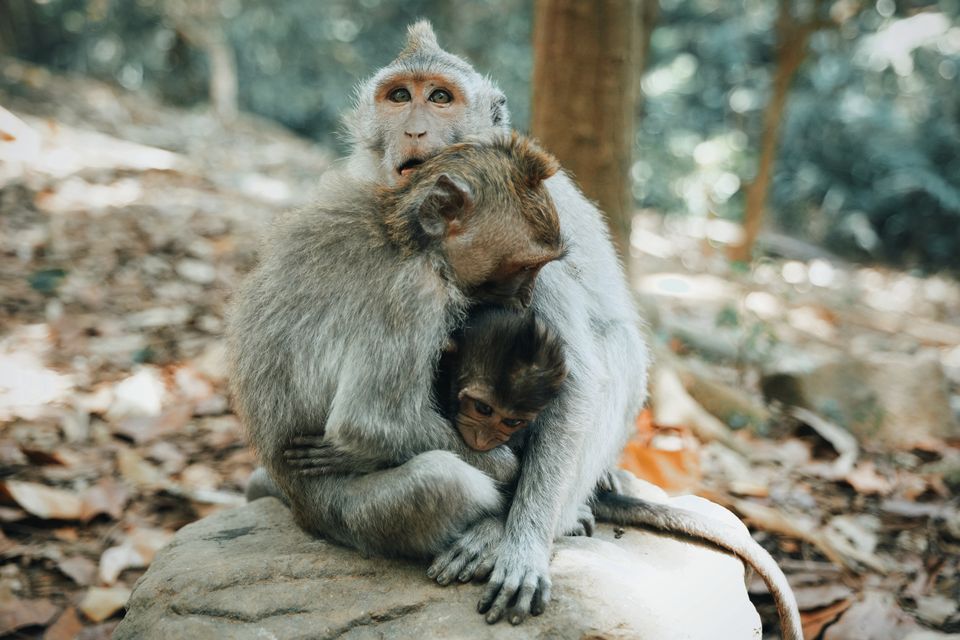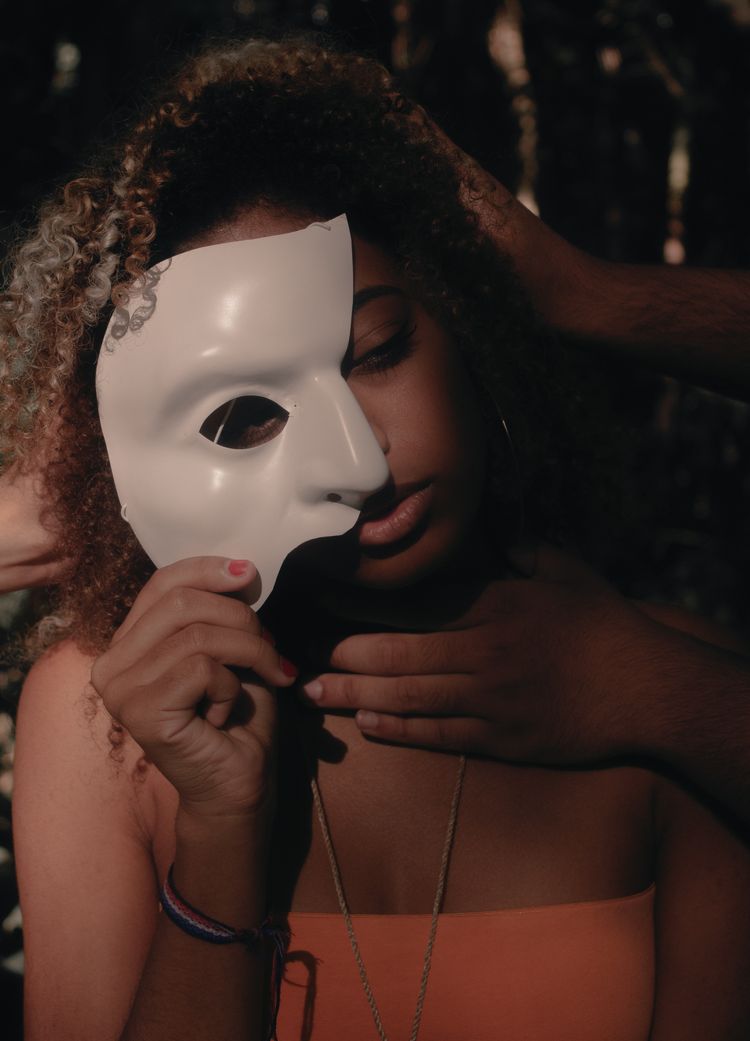How I Protect My Children Against Sexual Assault

A Forensic Psychologist's Guide
As a parent, the idea of harm falling onto my children is terrifying. It is a fear that keeps me up at night. All my intrusive thoughts center around it. As a Forensic Psychologist, I see the dark side of humanity. The worst of the worst. I interview rapists, murderers, and pedophiles.
Once I became pregnant, my mother-bear instincts went into overdrive.
How do I keep them safe?
How can I make sure they trust me enough to tell me things?
What can I do to protect them?
There is no way to foolproof way to ensure that they never experience sexual assault. There is also no flawless way to protect them from breaking an arm or having their heart broken. That's a fact I'm learning to accept.
But I've used my training in Forensic Psychology and my interviews with predators to guide me. I've researched and reflected on the best ways to protect them. I started implementing these methods before they could even talk.
Let's get into it.
1. That's Your Penis!
Penis. Vagina. Anus. Breast. Testicles. Balls. Butt. Boobs. Nipple.
My two-year-old knows how to say them all. He knows what they are and where they are located.
Trust me.
No matter how uncomfortable it is to say, I teach my children the real names of their body parts. I try to teach all the commonly used terms for them. I avoid all "cutesy" names for body parts. There is no "zee-zee," "lollipops" "foo-foo" or "cookie" on the body.
Why?
It lets them state clearly what's going on: "That man tried to touch my penis" vs "That man tried to touch my lollipop." Any adult or caregiver who hears the first sentence knows to step in immediately.
2. No Means No
We can teach consent very early on, even before they can say the word "No."
Before my son could talk, we would have "tickle wars." I would tickle for three seconds and he would explode into laughter. Then I would stop and wait. Using his facial expressions, I would see if he was still having fun (smiling) or if he was done.
Then he learned to use sign language for 'more' and 'all done.' We played the same game, but he was even more in control.
I would tickle. Cue laughter. Pause. He signs "more." I tickle again. As soon as he did the "all done" sign, game over.
Stop means stop.
Now, I have a two-year-old that is not afraid to say 'no' or 'stop' to any adult. It doesn't come without its challenges, though. You try negotiating with a toddler that he needs to sit on the toilet and he keeps telling you "No."
3. No Forced Affection
"Do you want a kiss? Do you want a hug?" is how I ask him for affection. Often, he says no. No matter how much I want to kiss his adorable face, I respect his 'no.'
No one is allowed to force affection from my son, even me. His grandparents and caregivers know the rules. Guilt-tripping is banned too.
If he says no, please don't pout or ask him sadly, "No hug for grandma? No kisses?"
He doesn't need to explain. No one should make him feel guilty. He doesn't need to make himself uncomfortable to cater to the desires of the surrounding adults.
4. No Secrets from Mom and Dad
One rule we discussed with our family members was "No secrets from Mom and Dad." To clarify, my children can have secrets. Everyone is entitled to their own private life.
But other adults are not allowed to tell them secrets to keep from Mom and Dad. Not even as a joke. "Don't tell Mom I gave you ice cream." Nope.
It might seem harsh, but I'm not teaching them that adults can make them keep secrets from me.
When my children get older, I will dive deeper into this. It will evolve into, "If any adult asks you to keep a secret from mom or from dad, the first thing you should do is tell us. You won't get in trouble, promise."
5. Teaching Boundaries
Like any curious two-year-old, he wants to explore his body and ours. Sometimes it's funny, sometimes it is downright embarrassing.
Nothing like having your son try to touch your vagina while you're getting changed in the locker room.
We teach him that consent matters both ways. If we say no to touching us, he has to respect it too.
When they are older, the conversation will develop to:
- No adult should touch your private area (everywhere where a swimsuit covers).
- No adult should take pictures of your private area either.
- No adult should ever ask you to touch them where their swimsuit would cover.
If an adult is making you uncomfortable, call mom or dad. If we aren't around, ask an adult you trust to help you out. Stick with a group of friends and wait in a busy area.
6. Trust My Gut
When I was an adult, I finally opened up to my mom about the time a childhood friend's father sexually assaulted me. Telling her was one of the scariest things I have ever done. Even as a psychologist and knowing damn well I did nothing wrong, being that vulnerable was terrifying. She responded by crying and telling me: "I prayed he didn't do anything to you."
Hold on.
You prayed?
As in, you knew this man was not to be trusted and you still let me go over for sleepovers?
At 10 years old, you made me responsible for protecting myself. It was up to me to avoid my friend's house and turn down sleepovers. This shouldn't surprise anyone, but "Pray on it" didn't make this list. Her response broke something in me. Our relationship suffered for it. She failed me when I needed her.
But that response taught me a valuable lesson: Trust my gut. Any bad vibes, any bad instinctual feelings, and that person has no unsupervised time around my children.
I want to teach my children to follow their intuition as well. Someone makes you uncomfortable but you don't know why? Stay away from them.
7. Give them Quality Time and Attention
Want to know what Child Predators look for in their victims?
Child predators seek out children who are lonely and isolated. They make easier 'prey' because they don't have any adults to confide in. Child predators then fill that void. They shower those children with attention and make them feel like a friend. Unfortunately, isolated children will pursue that attention- anything is preferable to nothing.
That's how the grooming process begins.
That's why I spend quality time with each child. I give them my full attention and let them direct what we do. My goal is to fill up their cups with attention and love. This is a time to strengthen our bond. It will teach them they can depend on me.
Similarly, when my child is trying to tell me something, I focus on them. Life is filled with distractions, and we all have an infinite checklist of things to do. I may not be able to do it every single time, but I try as much as possible. When they want to share something with me, I will listen.
8. I'll Be the Villain
While my children are too young for this one, this is something I intend to do with them.
I'll be the bad guy.
You give me the secret code that you want to be picked up (night or day) and I'll make excuses for you.
Blame me.
Tell your friends your mom is being a pain in the ass and making you come home to clean your room. I don't mind. I'll do it happily to keep you out of a situation you don't want to be in.
--
No matter what I do, there are some things that are out of my control. Even with the best planning and intentions, bad things happen. Bad people exist. However, these techniques will still help to build a foundation for my children. They feel safe with me and can come to me with anything. They will trust their own instinct and know how to communicate issues.
Leave a comment on your thoughts and if you have any other tips.
If you like this content, subscribe and follow.




